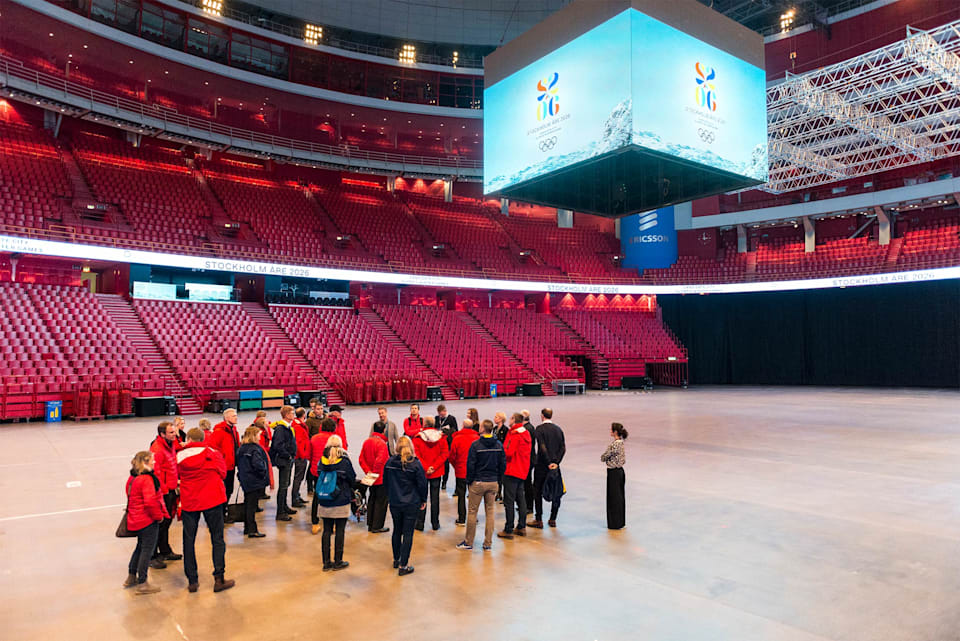IOC Evaluation Commission attests to sustainability of Stockholm-Åre project in line with Olympic Agenda 2020
After a five-day visit to the cities of Stockholm, Åre and Falun, the International Olympic Committee (IOC) Evaluation Commission today attested to how the Swedish candidature for the Olympic and Paralympic Winter Games 2026 has fully embraced the reforms of Olympic Agenda 2020.
It makes the most of existing infrastructure in these cities, as well as the sliding centre in Sigulda, Latvia. And it takes advantage of the national passion for winter sports and the experience of local operators and volunteers in delivering World Championships and World Cups for decades.
The Commission has been in Sweden since Tuesday 12 March to visit the prospective venues, receive presentations, and interact with the Candidature Committee and relevant stakeholders.
Evaluation Commission Chair Octavian Morariu said: “Sweden is a leading country in sustainability and is committed to reaching global goals and innovating in this field. This is central to the Olympic Movement. We are very satisfied that prioritising legacy and the environment resonates with the Swedish people.”
The Chief Executive of the Stockholm-Åre Candidature Committee, Richard Brisius, stated: “In this country we love winter sports. We have the facilities and the organisational capabilities. Our vision focuses on sustainability, public health and building something that will be not only for the Games but for beyond 2026.”

During the week, the Commission has heard statements from the Minister for Culture and Sport of Sweden, Amanda Linda; the Mayors of Stockholm and Åre, Anna König Jerlmyr and Daniel Danielsson; the Secretary of Education and Science of Latvia, Liga Lejina; the governors and mayors of the regions and other municipalities proposed to host events; and representatives of the business community.
Morariu added: “We have heard, including from public authorities, that work remains to be done to further define the roles and responsibilities of the different stakeholders. We are happy to see ever-increasing public support.”
As part of its ongoing work with the Candidate Cities, the Evaluation Commission will collate all the information gathered to produce a report that accurately reflects the reality on the ground. This will provide an objective basis for the IOC members to make their decision in the Host City Election of 24 June, during the IOC Session in Lausanne, Switzerland.
The Commission will be in Milan-Cortina from 2 to 6 April.